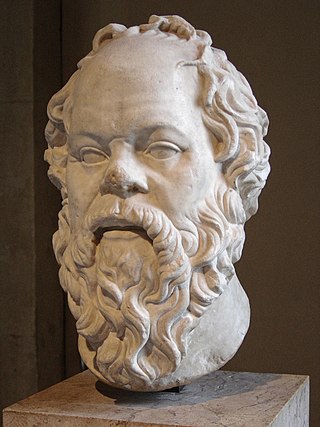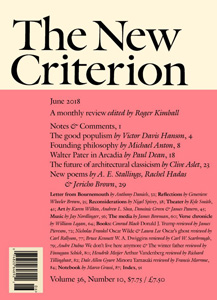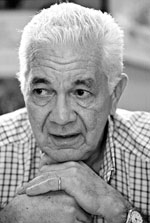This article provides a list of social thinkers .
The title social thinker denotes a person who is acknowledged as a visionary for social advancement.
This article provides a list of social thinkers .
The title social thinker denotes a person who is acknowledged as a visionary for social advancement.

An intellectual is a person who engages in critical thinking, research, and reflection about the nature of reality, especially the nature of society and proposed solutions for its normative problems. Coming from the world of culture, either as a creator or as a mediator, the intellectual participates in politics, either to defend a concrete proposition or to denounce an injustice, usually by either rejecting, producing or extending an ideology, and by defending a system of values.
Humanistic psychology is a psychological perspective that arose in the mid-20th century in answer to two theories: Sigmund Freud's psychoanalytic theory and B. F. Skinner's behaviorism. Thus, Abraham Maslow established the need for a "third force" in psychology. The school of thought of humanistic psychology gained traction due to Maslow in the 1950s.
Social philosophy is the study and interpretation of society and social institutions in terms of ethical values rather than empirical relations. Social philosophers emphasize understanding the social contexts for political, legal, moral and cultural questions, and the development of novel theoretical frameworks, from social ontology to care ethics to cosmopolitan theories of democracy, natural law, human rights, gender equity and global justice.

The New Criterion is a New York–based monthly literary magazine and journal of artistic and cultural criticism, edited by Roger Kimball and James Panero. It has sections for criticism of poetry, theater, art, music, the media, and books. It was founded in 1982 by Hilton Kramer, former art critic for The New York Times, and Samuel Lipman, a pianist and music critic. The name is a reference to The Criterion, a British literary magazine edited by T. S. Eliot from 1922 to 1939.

The oprichnina was a state policy implemented by Tsar Ivan the Terrible in Russia between 1565 and 1572. The policy included mass repression of the boyars, including public executions and confiscation of their land and property. In this context the term can also refer to:

Ivan Cankar was a Slovene writer, playwright, essayist, poet, and political activist. Together with Oton Župančič, Dragotin Kette, and Josip Murn, he is considered as the beginner of modernism in Slovene literature. He is regarded as the greatest writer in Slovene, and has sometimes been compared to Franz Kafka and James Joyce.
Robert Ludlow "Bob" Trivers is an American evolutionary biologist and sociobiologist. Trivers proposed the theories of reciprocal altruism (1971), parental investment (1972), facultative sex ratio determination (1973), and parent–offspring conflict (1974). He has also contributed by explaining self-deception as an adaptive evolutionary strategy and discussing intragenomic conflict.

Giovanni (Ivan) Biagio Luppis Freiherr von Rammer, sometimes also known by the Croatian name of Vukić, was an officer of the Austro-Hungarian Navy who headed a commission to develop the first prototypes of the self-propelled torpedo.
The social norms approach, or social norms marketing, is an environmental strategy gaining ground in health campaigns. While conducting research in the mid-1980s, two researchers, H.W. Perkins and A.D. Berkowitz, reported that students at a small U.S. college held exaggerated beliefs about the normal frequency and consumption habits of other students with regard to alcohol. These inflated perceptions have been found in many educational institutions, with varying populations and locations. Despite the fact that college drinking is at elevated levels, the perceived amount almost always exceeds actual behavior. The social norms approach has shown signs of countering misperceptions, however research on changes in behavior resulting from changed perceptions varies between mixed to conclusively nonexistent.

The Varna Necropolis, or Varna Cemetery, is a burial site in the western industrial zone of Varna, internationally considered one of the key archaeological sites in world prehistory. The oldest gold treasure and jewelry in the world, dating from 4,600 BC to 4,200 BC, was discovered at the site. Several prehistoric Bulgarian finds are considered no less old – the golden treasures of Hotnitsa, Durankulak, artifacts from the Kurgan settlement of Yunatsite near Pazardzhik, the golden treasure Sakar, as well as beads and gold jewelry found in the Kurgan settlement of Provadia – Solnitsata. However, Varna gold is most often called the oldest since this treasure is the largest and most diverse.
Pochvennichestvo was a late 19th-century movement in Russia that tied in closely with its contemporary ideology, Slavophilia.
Thought suppression is a psychoanalytical defense mechanism. It is a type of motivated forgetting in which an individual consciously attempts to stop thinking about a particular thought. It is often associated with obsessive–compulsive disorder (OCD). OCD is when a person will repeatedly attempt to prevent or "neutralize" intrusive distressing thoughts centered on one or more obsessions. It is also thought to be a cause of memory inhibition, as shown by research using the think/no think paradigm. Thought suppression is relevant to both mental and behavioral levels, possibly leading to ironic effects that are contrary to intention. Ironic process theory is one cognitive model that can explain the paradoxical effect.

Ivan Antonio Izquierdo was an Argentine Brazilian scientist and a pioneer in the study of the neurobiology of learning and memory.
Articles in social and political philosophy include:

Blue Labour is a British campaign group and political faction that seeks to promote blue-collar and culturally conservative values within the British Labour Party – particularly on immigration, crime, and community spirit – while remaining committed to labour rights and left-wing economic policies. It seeks to represent a traditional working-class approach to Labour politics.

Maurice Glasman, Baron Glasman is an English political theorist, academic, social commentator, and Labour life peer in the House of Lords. He is a senior lecturer in Political Theory at London Metropolitan University, Director of its Faith and Citizenship Programme and a columnist for the New Statesman, UnHerd, Tablet and Spiked. He is best known as a founder of Blue Labour, a term he coined in 2009.

The Purple Book: A Progressive Future For Labour is a 2011 collection of essays by politicians in the UK's Labour Party, many of whom are considered to belong to the Blairite wing of the party. The book was conceived and promoted by Progress, since renamed as Progressive Britain. It has been compared to The Orange Book: Reclaiming Liberalism, published seven years earlier by the then-leading members of the UK's Liberal Democrats.

Colon statues, a term derived from the French statues colon, are a genre of wooden figurative sculpture within African art which originated during the colonial period. The statues commonly depict European colonial officials such as civil servants, doctors, soldiers or technicians or Europeanised middle-class Africans. They are often characterised by recurrent decorative motifs, such as pith helmets, suits, official uniforms or tobacco pipes, and are painted in bright or glossy colours with vegetable-based paints.
Baruch Glasman was a Yiddish novelist, short story writer, and essayist. He was born in the miasteczko of Kapitkevichi, Mozyrsky Uyezd, Minsk Governorate, Russian Empire, in a family of craftsmen. From 1906 he lived in Kyiv, studied at yeshivas, as well as at the gymnasium. In 1911, he emigrated to the USA. He worked in a factory, house painter, attended night school. Glasman's first works were published in Yiddish, performed in 1913. He was published in almost all major American and European newspapers and magazines of his time. Glasman received a B.A. from Ohio State University in 1918, after which he served in the U.S. Army (1918–19). From 1924 to 30, he lived in Poland, where he toured, lecturing to audiences on the subject of Yiddish literature in America. Glasman was the first American-Jewish writer to visit the USSR in 1924, spent more than a year here, and upon returning, published a book in which he describes the life of working people in the USSR with great sympathy. In 1930, he returned to New York, where he remained until his death in 1945. He wrote his works in Yiddish and in English. The main theme of his work is the life of Jewish emigrants in America. His work is characterized by the image of a Jew surrounded by various nationalities, as well as a tendency to identify social contradictions in contemporary American Jewry.